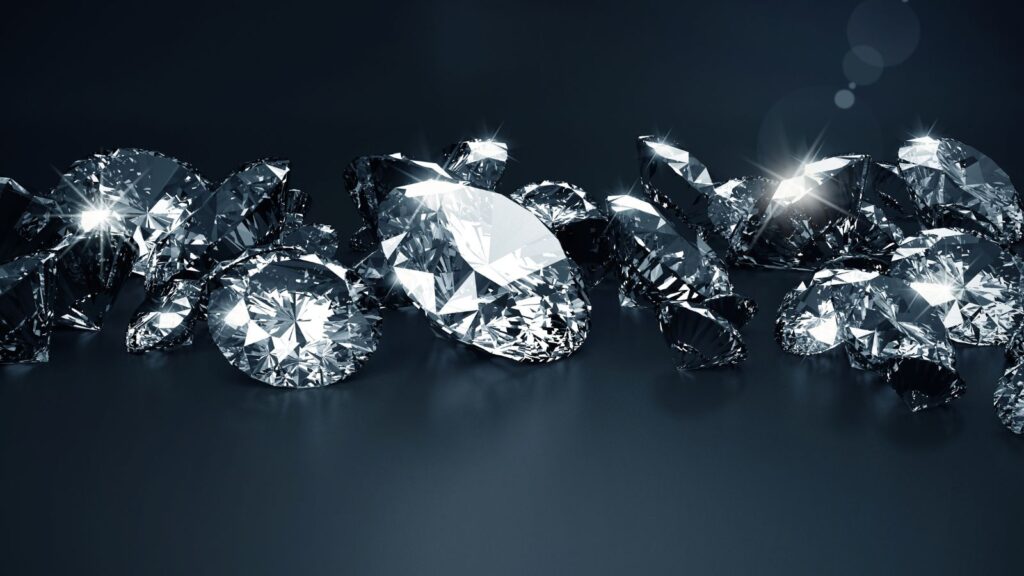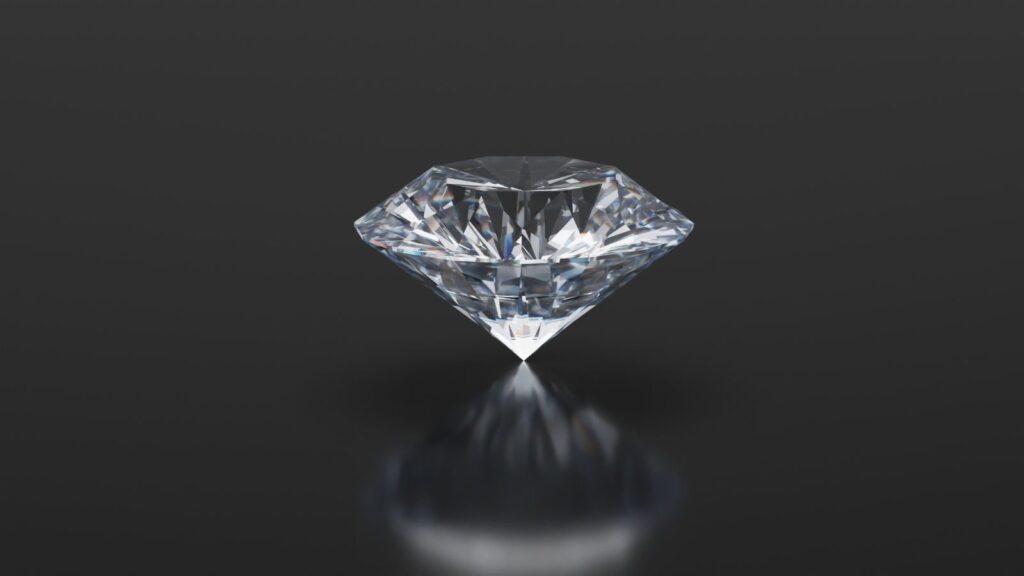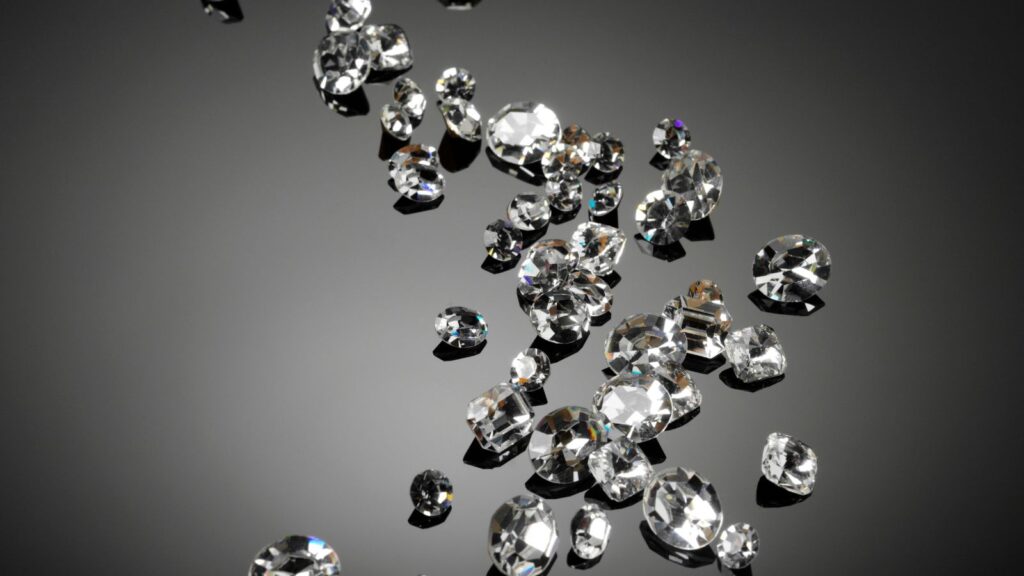Diamonds have long been symbols of elegance and luxury, often passed down as cherished heirlooms or gifted as tokens of love. However, not every diamond stays a part of your life forever. Whether you’re looking to declutter, address financial needs, or simply let go of unused jewelry, determining if your diamond is worth selling is a crucial step. Here’s a comprehensive guide to help you evaluate the resale value of your diamond, along with tips on appraisal and insights into market trends.
1. Understanding Diamond Resale Value
The resale value of a diamond is different from its original purchase price. Retail markups, market fluctuations, and the condition of the diamond all influence what you can expect to receive when selling.
1.1 Factors That Affect Resale Value
- Carat Weight: Larger diamonds generally fetch higher prices as they’re rarer and more desirable.
- Cut: A diamond’s cut significantly impacts its brilliance and beauty, affecting its value.
- Clarity: Diamonds with fewer inclusions and blemishes are more valuable.
- Color: Diamonds closer to being colorless command higher prices.
- Certification: Having a certification, such as from the Gemological Institute of America (GIA), boosts a diamond’s credibility and resale value.
1.2 Why Resale Prices Are Lower Than Retail
Retail prices for diamonds often include significant markups to cover overhead costs, marketing, and profit margins. When reselling, you’re unlikely to recoup the original retail price because buyers focus on the diamond’s wholesale value.
2. Steps to Determine If Your Diamond Is Worth Selling
2.1 Get Your Diamond Appraised
An appraisal provides an expert evaluation of your diamond’s quality and estimated value. While appraisals are often for insurance purposes, they can offer a baseline for resale expectations. Ensure you work with a certified appraiser who specializes in diamonds.
2.2 Check for Certification
A diamond with a GIA, AGS, or IGI certification is more attractive to buyers because it guarantees an unbiased assessment of its characteristics. If your diamond lacks certification, consider having it graded by a reputable gemological laboratory.
2.3 Evaluate Market Trends
Diamonds, like any commodity, are influenced by market trends. Monitor demand for specific diamond types, such as vintage cuts or colored diamonds, to understand how your piece fits into the current market landscape. Economic conditions and seasonal demand, such as during the holidays or wedding season, also affect pricing.

2.4 Inspect Your Diamond’s Condition
A diamond’s physical condition impacts its resale value. Chips, scratches, or dullness can reduce its appeal. Cleaning your diamond before having it evaluated can help showcase its true brilliance.
2.5 Assess the Jewelry Setting
If your diamond is part of a jewelry piece, consider the value of the entire item. Gold or platinum settings can add to the resale value, especially if the design is from a sought-after brand or has unique craftsmanship.
3. Where to Sell Your Diamond
Finding the right buyer is crucial for maximizing the resale value of your diamond. Here are some common options:
3.1 Local Jewelers
Many jewelers buy secondhand diamonds and can provide an in-person evaluation. Local buyers often offer competitive prices and immediate payment, making them a convenient choice.
3.2 Online Marketplaces
Websites specializing in diamond resales connect you with a global audience, potentially increasing your chances of finding a buyer willing to pay top dollar. However, be aware of listing fees, shipping requirements, and the time it may take to sell.
3.3 Auction Houses
Auctioning is ideal for rare, high-value, or vintage diamonds. Auctions can drive competitive bidding, resulting in higher prices, but there are fees involved, and the process may take longer.
3.4 Direct Diamond Buyers
Specialized diamond buyers or companies often provide instant quotes based on the diamond’s characteristics. Ensure you choose a reputable buyer with positive reviews and a transparent process.
3.5 Consignment
Selling on consignment allows you to display your diamond at a jeweler’s store, with the jeweler taking a commission upon sale. While this method might take longer, it can yield a better price.
4. Tips for Maximizing Your Diamond’s Resale Value
4.1 Clean and Polish Your Diamond
A sparkling diamond makes a better impression on buyers. Clean your diamond using a gentle solution of warm water and mild soap, or have it professionally polished.
4.2 Gather All Documentation
Documentation, such as purchase receipts, certification, and appraisals, helps build trust with buyers and can justify your asking price.
4.3 Get Multiple Offers
Don’t settle for the first offer you receive. Shop around to compare quotes from different buyers to ensure you’re getting a fair deal.
4.4 Timing Matters
Selling during high-demand periods, such as around holidays, weddings, or economic booms, can increase your chances of getting a better price.
4.5 Consider the Emotional Value
While financial value is important, don’t overlook the sentimental value of your diamond. Ensure you’re emotionally ready to part with it before making a decision.

5. Current Market Trends for Diamonds
5.1 Increased Interest in Sustainable and Secondhand Diamonds
With growing awareness of sustainability, more buyers are opting for pre-owned diamonds. This trend works in favor of sellers looking to offload unused pieces.
5.2 Rising Popularity of Unique Cuts
Fancy cuts like oval, pear, and cushion shapes are gaining popularity, potentially increasing their resale value. If your diamond features one of these cuts, you may find higher demand.
5.3 Market Demand for Vintage and Antique Pieces
Vintage diamonds with unique craftsmanship and history often fetch premium prices, especially if they’re part of a well-preserved piece.
6. Turning Unused Diamonds Into Financial Opportunity
Diamonds may hold a hidden value that can be unlocked through careful evaluation and sale. By understanding your diamond’s characteristics, staying informed about market trends, and choosing the right buyer, you can ensure a rewarding selling experience. Whether you’re funding a new venture, addressing financial needs, or simply decluttering, selling your diamond can transform an unused asset into a meaningful opportunity.
If you’re ready to explore the value of your diamond, consult a trusted diamond buyer or appraiser today to take the first step toward turning hidden value into tangible benefits.

